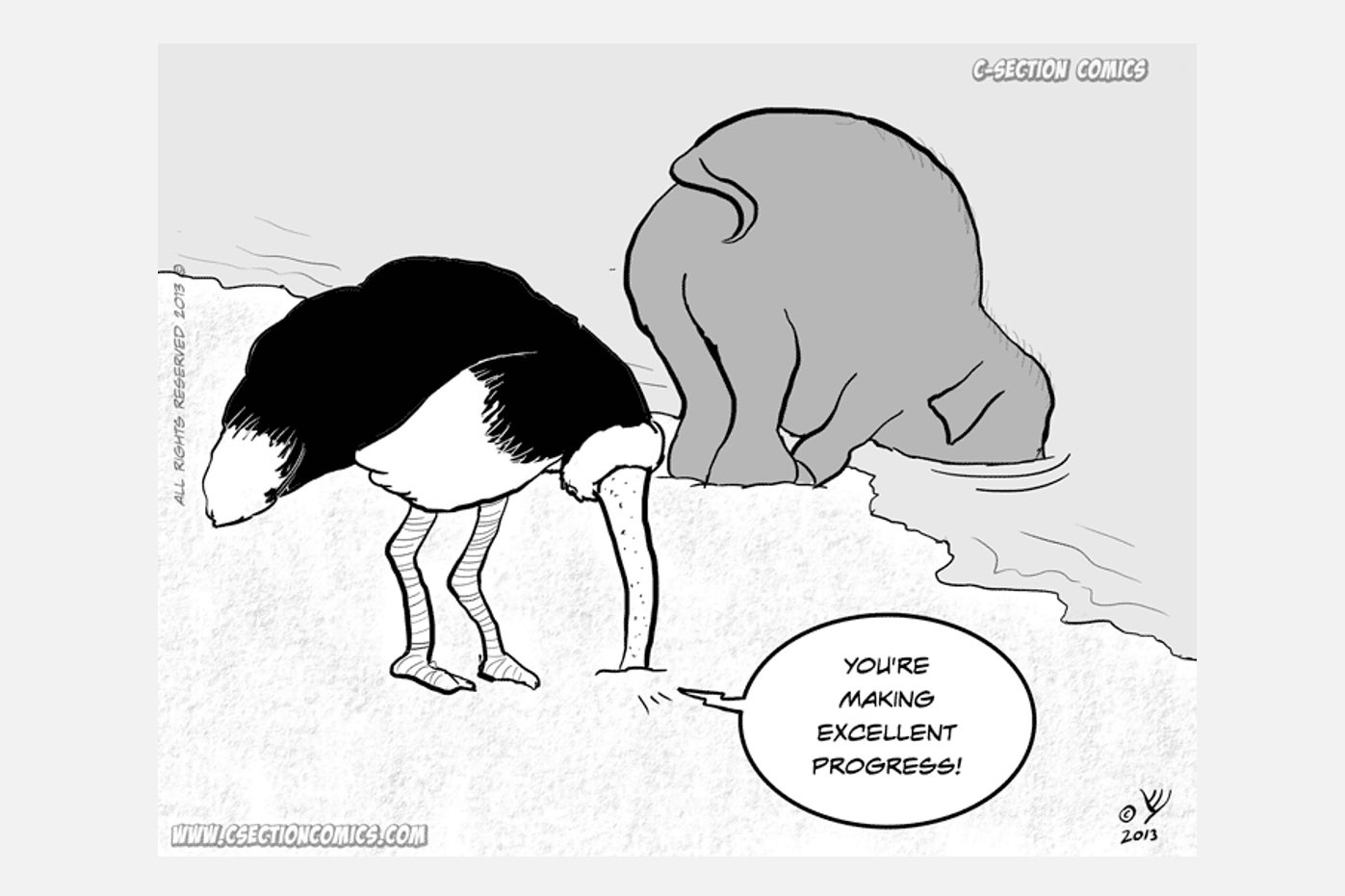The hidden message of Don’t Look Up
Netflix has a new number one hit. With a stellar cast, the movie touches politics, the environment, and the role that media play in all this chaos. But there is an untold message we can read between the scenes.
Credits to C-Section Comics
A few days ago, I tested positive for covid-19. The timing could have not been worse. I had already planned the move to a new country and – even more important – spending New Year’s Eve with high-school friends in the mountain. Guess what? My plans have drastically changed.
I found myself at home, alone, with only yogurt and a few olives in the fridge. Usually, there are also cheese and beers, but the relocation was planned within two days and there was no need to refill it.
Out of despair, I trusted the black and red hero that has rescued many of us during the darkest days of the pandemic: Netflix. Honestly, this was the first time I used it – thanks, Ari. In general, I prefer to live my life instead of watching on a screen that of others – real or invented. But given the circumstances, I entered the Netflixers community.
Before starting, I set myself one rule: you will only watch movies you can learn something from. I didn’t stick to it – especially towards the end of my isolation – but this is another story. Don’t Look Up by Adam McKay is the movie that impressed me the most.
The plot? An astronomer (Leo Di Caprio) and a doctoral student (Jenny Lawrence) discover a comet hurtling towards Earth. It will hit, and it will destroy the planet. No one believes them or cares until a Steve Jobs-like character figures out how to make money off the coming disaster. And…no spoiler.
The title refers to the movement that grows up to deny the reality of the incoming comet. If you Don’t Look Up, the comet does not exist. Sound familiar? That only changes when the comet finally can be seen by the naked eye. By then, of course, it is far too late.
I am the furthest from being a movie critic, but – given the topic – my brain started to ruminate on the message of the movie. The most charming Leonardo on Earth has explained that the film is an analogy of modern-day culture and our inability to hear and listen to scientific truth.
It brings a mirror to our entire culture and how we deal with bad news. And whether we as a species can evolve truly to focus on what is ultimately the most important issue that has ever faced humanity in the history of civilization.
But there is more. And it is something that bothers me a bit. Is this movie just reinforcing the old school narratives, that there are some corrupt and ignorant elites responsible for the climate disaster? Then there are stupid people easily manipulated by these elites (those who don’t look up)? And then there is us?
McKay is fabulous in allowing his viewers to identify with Jenny’s character. She is a cool smart girl resembling a hipster Cassandra (a truthteller). She spotted the comet first. And she yells at the hosts of a very American TV show when they keep belittling reality.
Applying a “we” against “them” dichotomy to the climate crisis will not bring us one inch closer to solving it. Any movie or article which wants to convince us we are dealing with a lack of knowledge or disbelief in science, is leading us deeper into the problem. Not out of it.
As I wrote many times already, the ultimate polluters of this climate crisis are me, you, and our lifestyles. There is no “us” or “them”. We are the cause and so the solution. And talking about solutions, the authors created a website with a list of steps you can take now to save the planet.
Nice idea but, honestly, too simplistic. Dear Adam, Leo, Jenny & CO., why not investigate a bit more on the solution side? It would be nice to see how we can live better lives within this mess. If a virus will hit me again in the future, I will gladly watch your next film!

